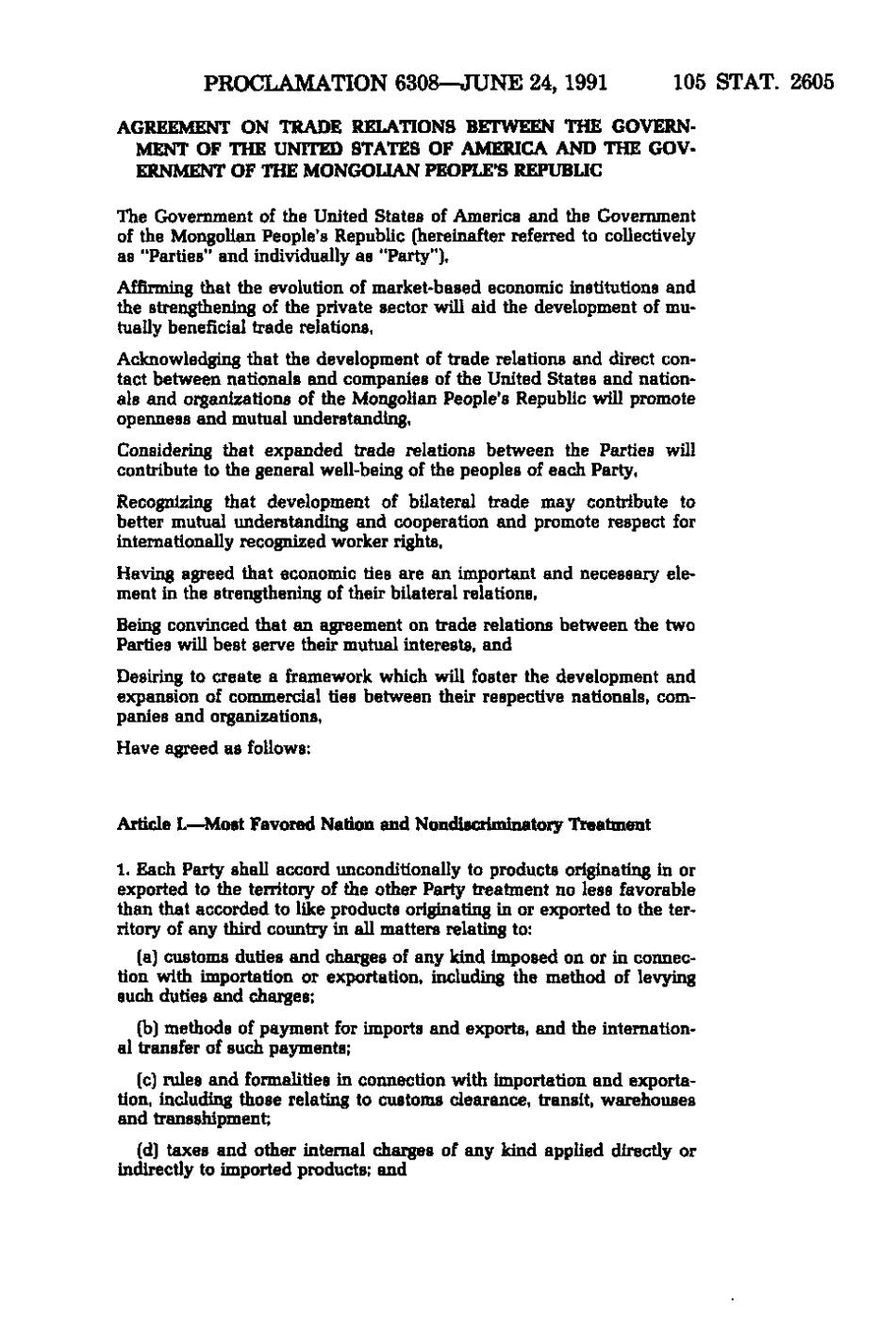PROCLAMATION 6308—JUNE 24, 1991 105 STAT. 2605 AGREEMENT ON TRADE RELATIONS BETWEEN THE GOVERN- MENT OF THE UNITED STATES OF AMERICA AND THE GOV- ERNMENT OF THE MONGOUAN PEOPLE'S REPUBLIC The Government of the United States of America and the Government of the Mongolian People's Republic (hereinafter referred to collectively as "Parties" and individually as "Party"), Affinning that the evolution of market-based economic institutions and the strengthening of the private sector will aid the development of mutually beneficial trade relations, Acknowledging that the development of trade relations and direct contact between nationals and companies of the United States and nationals and organizations of the Mongolian People's Republic will promote openness and mutual understanding, Considering that expanded trade relations between the Parties will contribute to the general well-being of the peoples of each Party, Recognizing that development of bilateral trade may contribute to better mutual understanding and cooperation and promote respect for internationaly recognized worker rights, Having agreed that economic ties are an important and necessary element in the strengthening of their bilateral relations. Being convinced that an agreement on trade relations between the two Parties will best serve their mutual interests, and Desiring to create a framework which will foster the development and expansion of commercial ties between their respective nationals, companies and organizations. Have agreed as follows: Article I.—Most Favored Nation and Nondiscriminatory Treatment 1. Each Party shall accord unconditionally to products originating in or exported to the territory of the other Party treatment no less favorable than that accorded to like products originating in or exported to the territory of any third country in all matters relating to: (a) customs duties and charges of any kind imposed on or in connection with importation or exportation, including the method of levying such duties and charges; (b) methods of payment for imports and exports, and the international transfer of such payments; (c) rules and formalities in connection with importation and exportation, including those relating to customs clearance, transit, warehouses and transshipment; (d) taxes and other internal charges of any kind applied directly or indirectly to imported products; and
�
